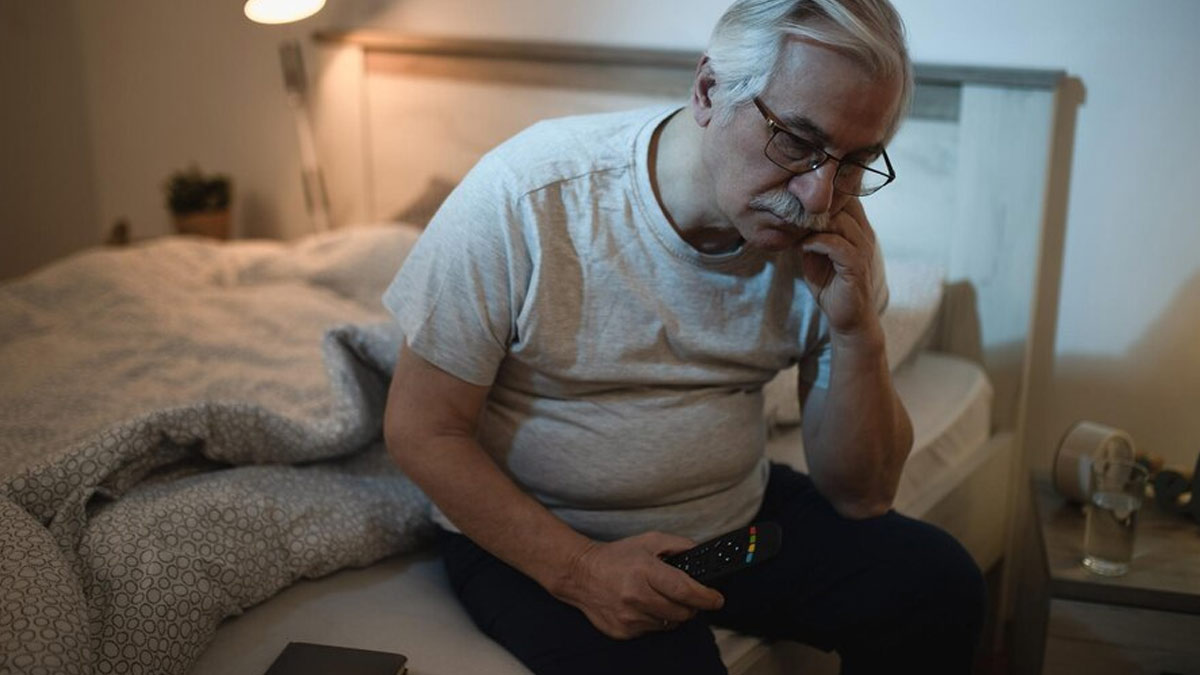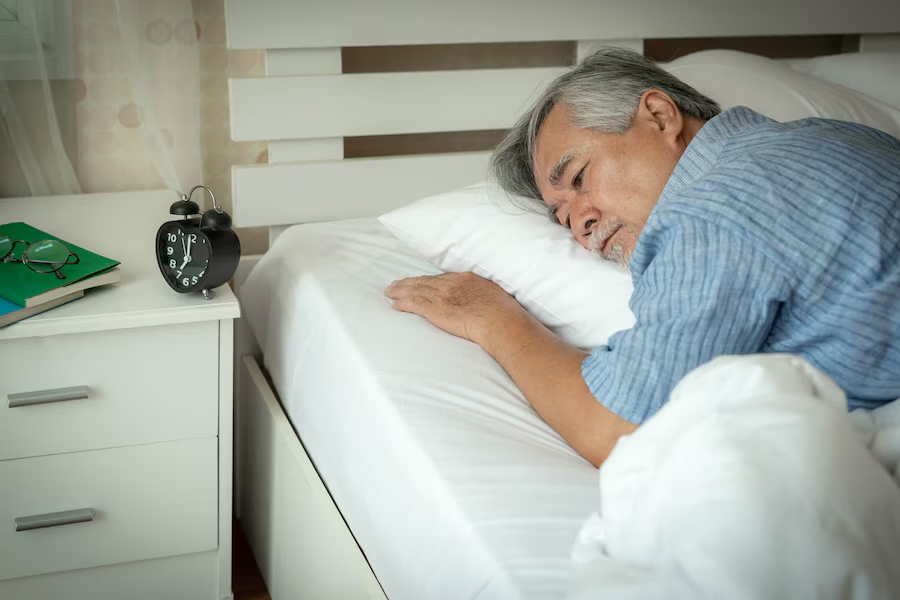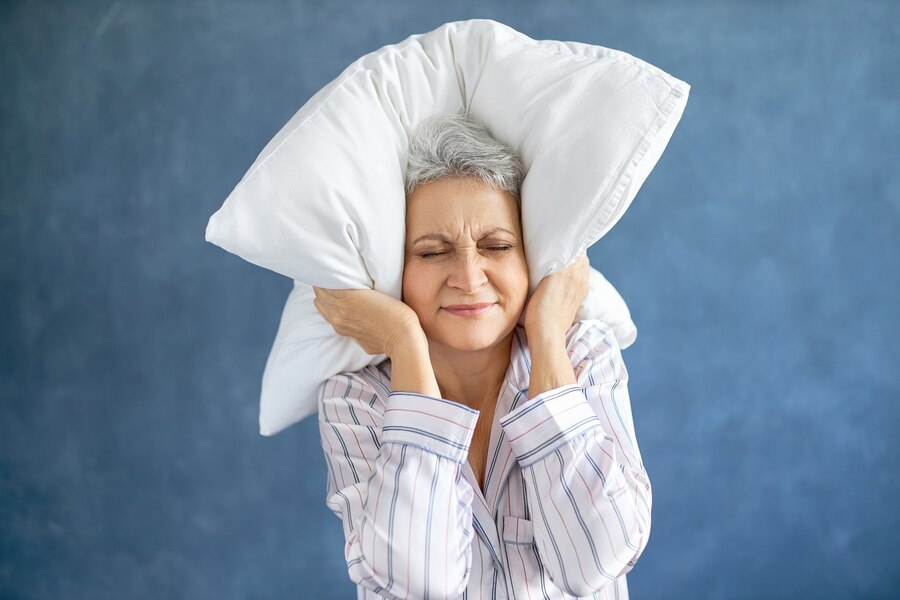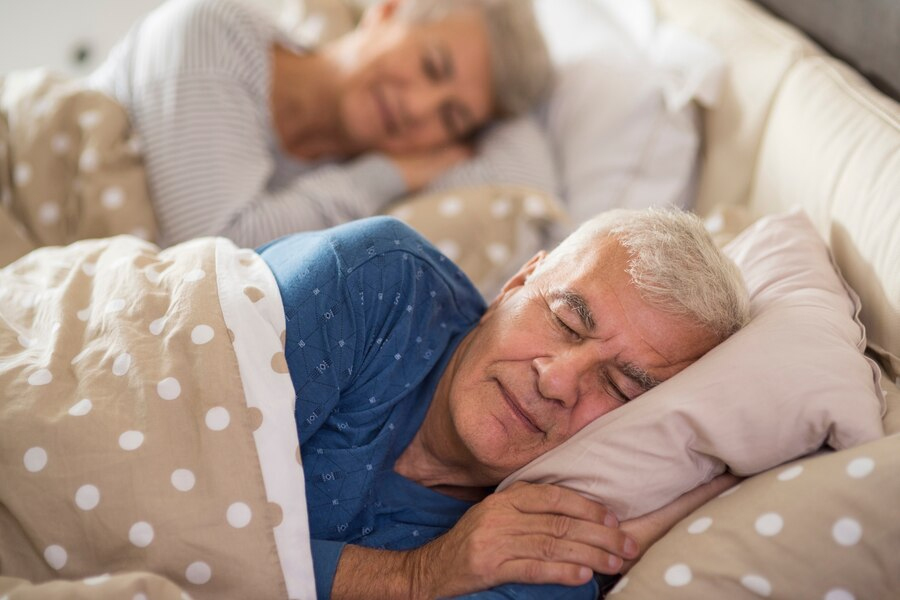
Just like diet and exercise, sleep plays an important role in maintaining our overall health and wellness. Adequate sleep supports our immune system and helps lower the risk of serious health issues, such as diabetes and heart disease, while also reducing stress levels and improving mood. According to a study published in the journal Sleep, seven or more hours of sleep per night is the recommended amount of sleep for a healthy adult. But with age, the amount of sleep may vary in older people, as they tend to go to sleep earlier and get up earlier than they did when they were younger, as per the National Institute on Aging.
Table of Content:-
In an interaction with the OnlyMyHealth team, Dr Salil S Bendre, Director, Pulmonology, Nanavati Max Hospital, Mumbai, sheds light on the same and explains why the elderly sleep less as compared to younger people.
Also Read: Wrinkles And Other Signs Of Ageing: How To Delay Them
Can Ageing Impact Sleep?

Ageing can indeed affect both the quality and quantity of sleep, says Dr Bendre.
He explains, “As people age, they often experience changes in their sleep patterns. This can include lighter sleep, more frequent awakenings during the night, and a tendency to wake up earlier in the morning. Additionally, older adults may spend less time in the deeper stages of sleep, such as REM (rapid eye movement) sleep, which is crucial for feeling rested and alert.”
According to the Sleep Foundation, it is common for older adults to experience changes in the quality and duration of their sleep. This occurs mainly due to the changes in the body’s internal clock, also known as the circadian rhythm, which is made of around 20,000 cells that form the suprachiasmatic nucleus (SCN).
This tiny brain area controls our 24-hour cycles, including sleepiness. As we age, the SCN weakens, disrupting these rhythms and making it harder to fall asleep and stay awake at the right times.
Reduced exposure to daylight, especially common among those in nursing homes or with Alzheimer's, further weakens the SCN's ability to regulate sleep-wake cycles. Additionally, hormonal changes like lower melatonin production, a hormone that promotes sleep, contribute to sleep disturbances in older adults, the health body explains further.
Why Do Older People Sleep Less?
As per Dr Bendre, some of the common factors that contribute to older people sleeping less include:
Changes in sleep architecture: Ageing can alter the structure of sleep, leading to lighter and less restorative sleep.
Health issues: Older adults are more likely to experience health issues such as chronic pain, arthritis, heartburn, or respiratory disorders, which can disrupt sleep.
Certain medications: Medications, commonly prescribed to older aadults,can have side effects that interfere with sleep.
Additionally, retirement, changes in daily routine, and decreased physical activity can all impact sleep patterns. Moreover, stress, anxiety, depression, and other mental health conditions can affect sleep quality and duration, adds Dr Bendre.
Also Read: 6 Vitamin E-Rich Food Items That Help Unlock the Anti-Ageing Powers
Common Causes Of Insomnia In The Elderly

Insomnia, or difficulty falling asleep or staying asleep, is common among older adults, says Dr Bendre.
In general, chronic insomnia affects approximately 30% of the general population, with age and gender being the most clearly identified demographic risk factors, as per a study published in the Journal of Clinical Sleep Medicine.
Some of the common causes include:
- Changes in sleep patterns due to ageing
- Medical conditions such as chronic pain, heart disease, or respiratory disorders
- Medications that can disrupt sleep
- Lifestyle factors such as excessive caffeine intake, irregular sleep schedules, or a lack of physical activity
- Psychological factors such as stress, anxiety, or depression
Tips To Improve Sleep Hygiene In Old People

Sharing a few tips to improve sleep in older people, Dr Bendre lists:
- Maintain a consistent sleep schedule by going to bed and waking up at the same time every day, even on weekends.
- Create a relaxing bedtime routine to signal to your body that it's time to wind down.
- Make sure your sleep environment is comfortable, quiet, and conducive to sleep.
- Limit caffeine and alcohol intake, especially in the evening.
- Stay physically active during the day, but avoid vigorous exercise close to bedtime.
- Manage stress through relaxation techniques such as deep breathing, meditation, or yoga.
Conclusion
With age, sleep patterns may change, and sleep quality may therefore decline simultaneously. Many factors can contribute to it, including underlying health issues, certain medications, and lifestyle factors. The key is to maintain a good sleep schedule, eat healthily, and limit foods that can cause stress. If the sleeplessness is chronic, then it is best to contact your healthcare provider.
Also watch this video
How we keep this article up to date:
We work with experts and keep a close eye on the latest in health and wellness. Whenever there is a new research or helpful information, we update our articles with accurate and useful advice.
Current Version